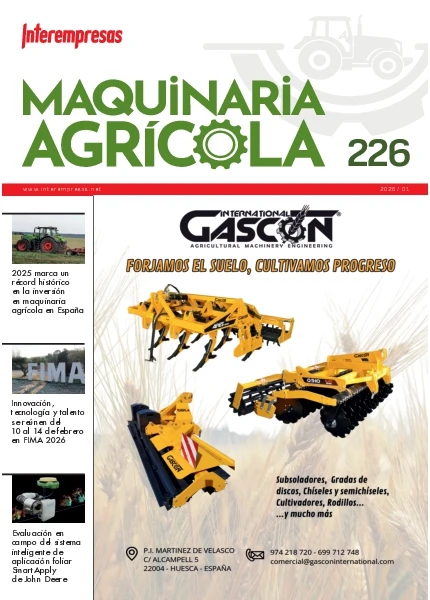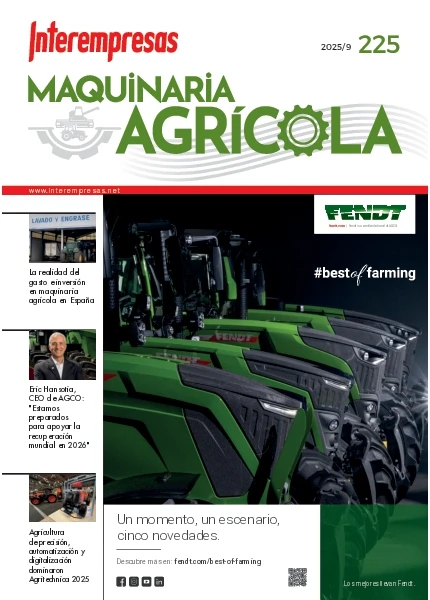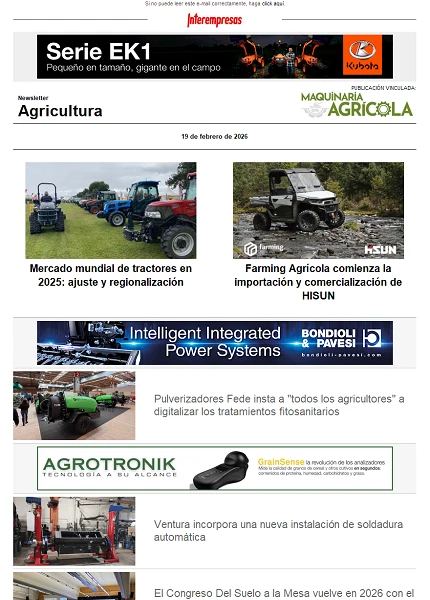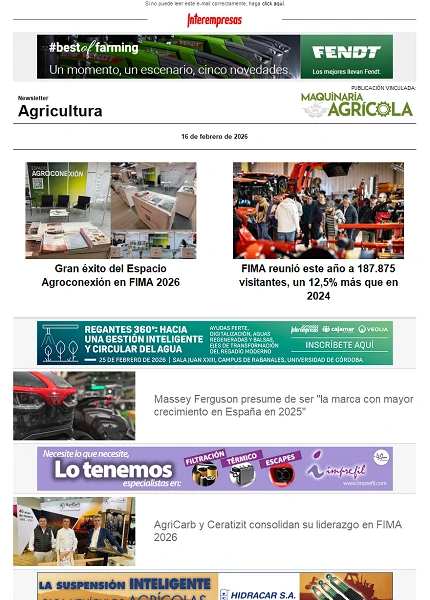"Our mission is to ensure we can offer the same level of service to our dealers and distributors, no matter what"
Interview with Eric Hansotia, CEO of AGCO Corporation since 2021
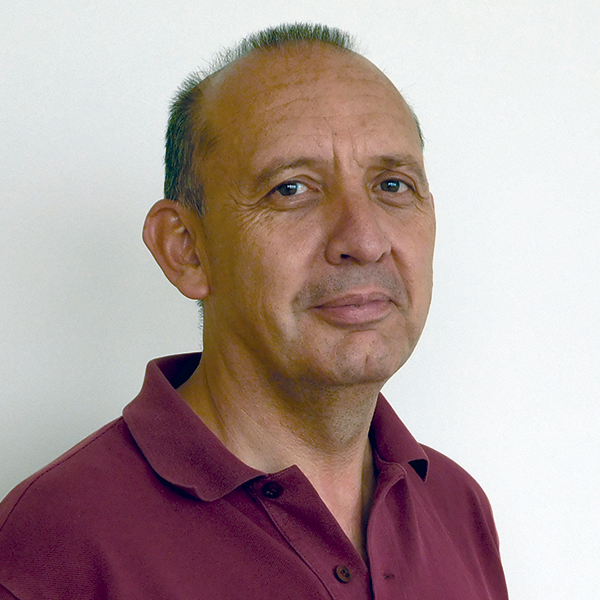
Por su gran interés a escala mundial, y atendiendo a las peticiones recibidas, decidimos publicar esta entrevista también con el texto en Inglés, después de hacerlo el 21 de noviembre en castellano.
A few weeks before officially taking the reins of a multinational of the size and global importance of the AGCO Corporation, Eric Hansotia (51) had the deference to attend Interempresas Media and answer numerous questions about his company, the strategy to follow with the different brands, the agriculture of the future and so on.
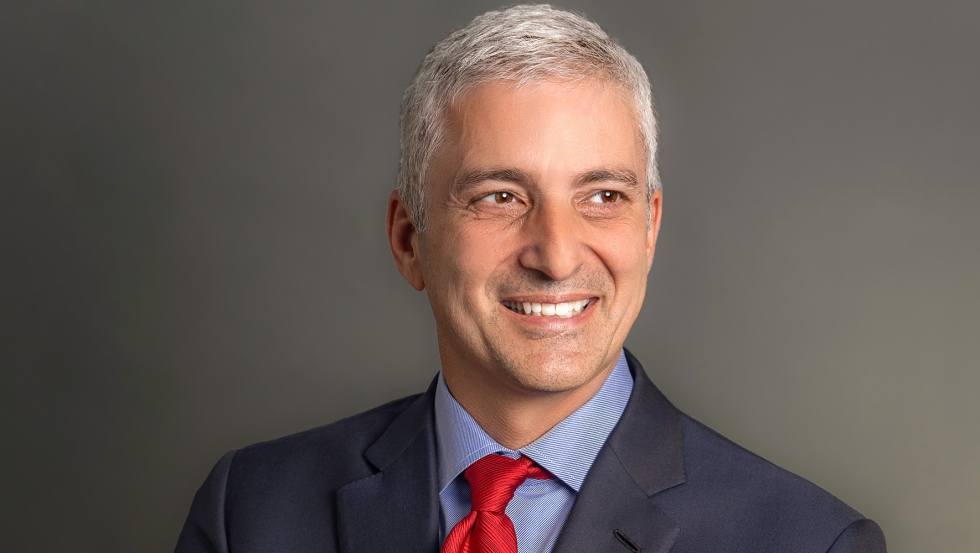
Education and Experience
- 1986-1991 Wisconsin-Madison University
- 1996-1998 Iowa University
- 2000-2005 John Deere: Vicepresidente Global Forestry
- 2005-2009 John Deere: General Manager - Harvester Works
- 2009-2012 John Deere: Vicepresidente Crop Care
- 2012-2013 John Deere: Vicepresidente Crop Harvesting
- 2013-2014 AGCO Corporation: Senior VP - Global Harvesting and Advanced Technology Solutions
- 2014-2018 AGCO Corporation: Senior VP Global Harvesting, Crop Care, Advanced Technology Solutions, & Dealer Technical Support
- 2019-2020 AGCO Corporation: Chief Operating Officer
- 2021… AGCO Corporation: CEO
Born in London (UK), Eric P. Hansotia grew up working on a dairy farm in Wisconsin (USA). In his youth he was part of the 4-H (Head, Heart, Hands, and Health - Cabeza, Corazón, Manos y Salud), an organization in EE UU, administered by the Department of Agriculture, which groups more than 6.5 million of members ages 5 to 19 in about 90,000 clubs. He was also local president of Future Farmers of America (FFA), another organization that also empowers and educates rural youth. His professional career has more than 30 years and to his new responsibility he brings extensive industry knowledge, strong strategic vision on future trends in global agriculture, and highly diverse operating experience.
Since joining AGCO in 2013 as Senior Vice President Global Crop Cycle and Fuse Connected Services, he has led initiatives that contribute to the success of the company, such as the one focused on the IDEAL combine and, more recently, as Senior Vice President and Chief Operating Officer (COO) leading the challenges presented by the current scenario caused by COVID-19. Since 1st January, 2021, he is the CEO of AGCO Corporation.
There’s a sense of pride and at the same time a responsibility and a challenge for you to reach the position that for more than 16 years has been held by someone like Martin Richenhagen. How did you feel when you were informed that you were chosen to be AGCO’s new CEO? Why do you think you were the person chosen for such an important position?
I have always been passionate about farming and innovation. Born in London, England, I grew up working on a dairy farm in Wisconsin, the heart of dairy country in the U.S. I was part of 4-H and became president of my local chapter of the Future Farmers of America (FFA), two organizations that empower and educate rural youth.
I have been in the industry for nearly 30 years and bring to this role broad industry knowledge, a strong strategic view on the future trends in global agriculture and diverse operational experience. Since joining AGCO in 2013, I have led initiatives contributing to AGCO’s success, including the IDEAL combine effort and most recently leading the company through the unique challenges presented by COVID-19.
In which direction and to which segments of the company will your first decisions go? What short, medium and long-term objectives have been set, in terms of business organization and results?
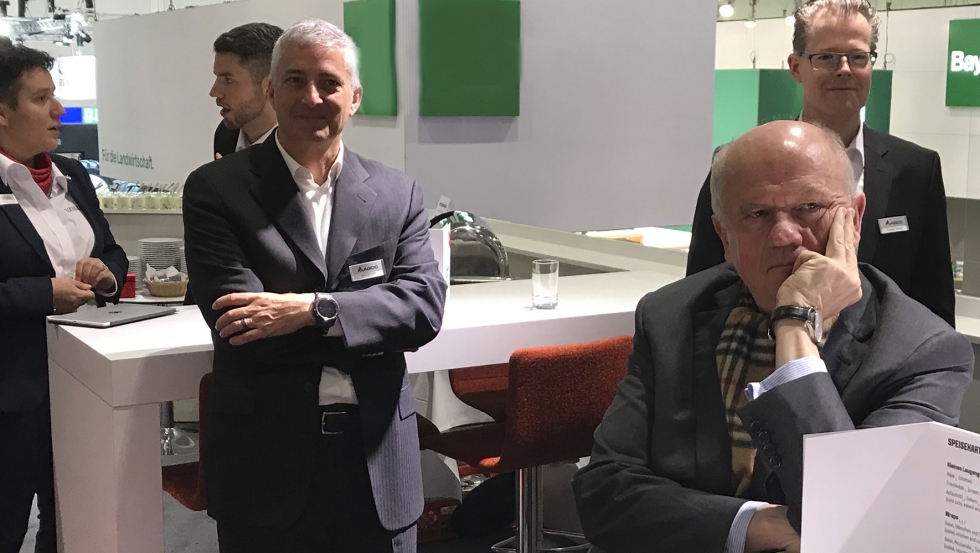
How does the pandemic affect a process of change at the head of the management of a large company like AGCO?
We’ve involved all levels of the organization to effectively protect our employees, dealers and customers from the coronavirus and, thankfully, our rates have been about 50% lower than those reported in the general population. Our logistics team was quick to spot issues that the virus could cause in our supply chain and they reacted proactively to mitigate potential impact. Our Parts and Aftersales team, right at the beginning of the pandemic, did a tremendous job to ensure parts supply to farmers. While they were in planting season in the northern hemisphere and harvesting in the southern hemisphere, we kept them running. I’ve been very impressed with the way everyone pivoted and reacted to protect each other’s health and to help everyone adapt to the 'new normal'.
However, we have not been lulled into a sense of complacency by the experiences we’ve had so far. Our systems and senses remain in a heightened state to identify any change or threat that might impact our ability to meet our responsibilities to our dealers, farmers and employees. So, we’re ready to adjust to any new challenges we face.
Where do you see the greatest capacity for growth, from a geographic and product point of view?
From a product point of view, we’ve had tremendous success with Massey Ferguson in 2020, with sales across all its product lines that have exceeded goals we set last year. We had a massive, worldwide digital introduction of Massey Ferguson’s all-new MF 8S tractor in July, with more than 65,000 people connected, and we’re excited that it will arrive in North America in 2021.
Fendt tractors and the Fendt IDEAL 10T combine are the latest examples of how we are delivering on AGCO’s vision of providing sustainable high-tech solutions for farmers feeding the world. Simply put, the time is right for Fendt. In order to meet our farmers’ emerging demands, we’re focused on developing a stronger and expanded dealer network across North America, and Fendt is part of that plan.
We strongly believe that all of our brands are ideally positioned for growth in the coming years, and our plans for dealer expansion are a key component of that strategy.
South America is a fast-growing farm equipment market, and we are working hard to build on our decades of success in the region—Valtra celebrated 60 years in Brazil in May this year—with our Fendt brand expansion there. Our Momentum planter made its debut in South America, and we’re now rolling it out in North America.
In the Asia-Pacific region, the Australia/New Zealand and South Africa markets are more similar to the larger ag markets in NA, SA and EME. We believe our portfolio choices will position us well in those markets also. In the emerging markets, we are positioning ourselves for targeted opportunities with continued partnerships for lower horsepower machines to meet the needs of customers.
Do you plan to maintain the current structure, with independent teams by brands and market divisions by geographic criteria?
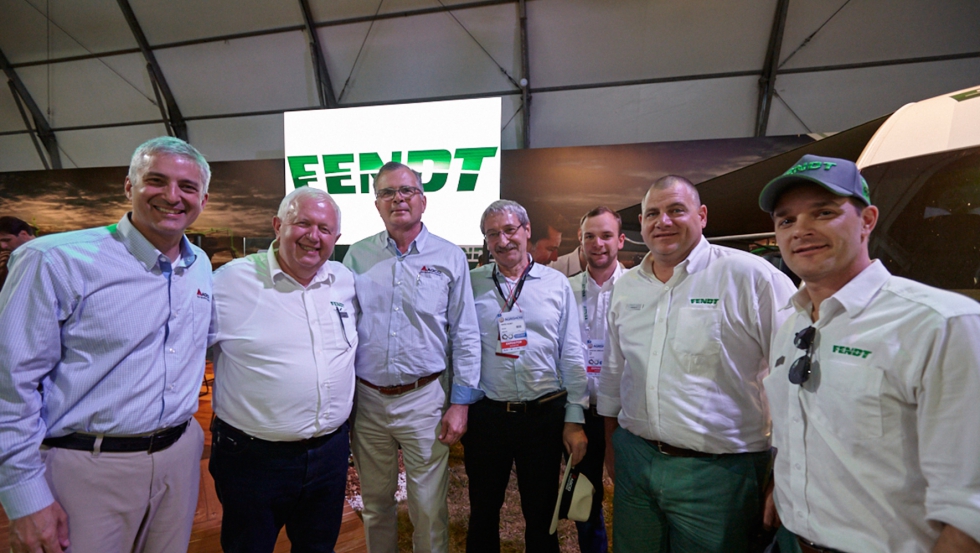
What role and space in the market do you reserve for your three main tractor brands: Fendt, Massey Ferguson and Valtra? Will they continue to work with the same approach as until now?
Each of our core brands has its own distinct position in the marketplace. Fendt technology delivers a premium, high-quality, high-tech product that is reliable, optimizes productivity and reduces cost of ownership over the life of the machine; and, they hold great resale value.
Massey Ferguson offers a straightforward and dependable experience providing the best value for money for farmers around the world. And Valtra offers purpose-built, robust and user friendly solutions for extreme applications, such as in snow conditions or in forestry.
What is the profile of a future dealer and the professionals that comprise it?
In professional sectors, after-sales service plays a decisive role and is a differential factor. What improvements and investments are planned in this area?
Once our customers have invested in AGCO machinery, then our AGCO Aftersales team strives to give them an ownership experience that will exceed even their highest expectations. Maintaining access to food is critical, even more to fighting this virus, in both the short and long term. We recognize the key role our equipment plays in a sustainable food supply and our team is are doing all they can to support our dealers and farmers to ensure food security during this critical time.
More than ever we recognize the key role that our equipment plays in a sustainable food supply. It means continuing to operate our parts, service and support functions for customers so they can keep feeding the world, whether planting or harvesting or caring for animals. And it means keeping these commitments while protecting the health of our customers, employees and communities. We succeeded pretty well and I’d like to give credit for this to our AGCO team members.
To continue to offer the best service and customer experience with our machines, we invest heavily in technology – guidance, remote diagnostics through connectivity, precision agriculture. This is practical technology designed by people who understand farming, farm machinery and the ag industry. It’s technology that makes farmers more efficient, more profitable. It’s technology that moves us away from reactive maintenance to a very real world of preventative, early-intervention maintenance that minimizes downtime and also reduces repair costs.
For example, we rolled out the AGCO Connect module in units over 150 horsepower for Valtra, Fendt and Massey Ferguson this year. This is allowing our customers to reap the benefits of connectivity. Farmers are already seeing reduced downtime and service costs, and dealers are able to provide remote support and diagnostics, which is a great benefit in uncertain times like these. You’ve noticed as well the MF Always Running programme launched at Agritechnica and promoted at FIMA, where we provide MF customers a courtesy machine while we conduct needed maintenance or repair. This is straightforward and dependable.
Recognizing the need of our professional customers to forensically manage costs and cash flow, we pride ourselves on offering the most comprehensive extended warranty and servicing packages on the market.
We’re currently working together with AGCO Finance to develop a suite of highly beneficial retail financing packages for launch through 2021. This will further support our customers with their cash flow by allowing expenditure to work seamlessly with the sporadic income patterns that apply to most farming businesses. Not least, we continually invest in tooling and training to provide our dealers with the crème de la crème amongst ag machinery technicians.
The service training delivered by our corporate teams has been highly effective for some time, but, in recent months, we’ve leveraged the changes brought on by COVID-19 to expand our remote and mobile capabilities with new tools and greatly expanded libraries of content, including on-demand access to instructional videos, product documentation and other engagement tools.
But at AGCO, we never rest on our laurels. We leave no stone unturned in the quest to provide the ultimate customer ownership experience. We have one single unerring focus – our customers’ satisfaction. We won’t stop as agriculture can’t stop.
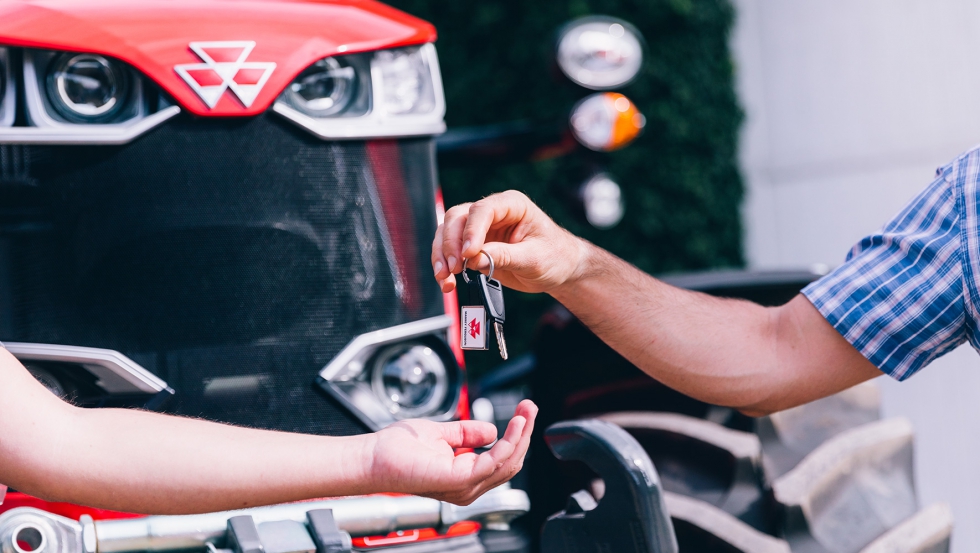
The connectivity between owner, machine and dealer (MF Connect) will play a key role in the future, according to the CEO.
Regarding Massey Ferguson, will the Route 66 strategy continue and with it the purpose of returning MF into a “full line” and continue to gain exclusivity with its own distribution network?
Massey Ferguson has strong ambitions for growth as part of the MF GT5 strategic plan, first presented back in 2017. In this plan, full line is the core, with a large product offensive led from 2017 with the introduction of new tractors, hay tools, combines and balers. The new era for Massey Ferguson has just started, and this product portfolio will be further strengthened in 2021 and beyond.
Massey Ferguson, with the support of AGCO’s Distribution Management department, is ‘shuffling the pack’ with several dealer changes or concentration taking place all over the EME region. These new distribution arrangements are the latest changes that will strengthen brand dedication and continue to deliver market share growth for each of our brands, including Massey Ferguson.
We have a clear strategic direction that places an emphasis on maximizing brand exclusivity while always improving dealer viability, and we determined to make these changes while offering all our valued partners the opportunity to further grow their business with us in the years ahead. We are confident that this focus will continue to develop the excellent customer-centric support that customers across the area enjoy and expect from our dedicated MF dealer partners.
For Fendt, you have expansion projects in various countries around the world. But, how do you assess the growth capacity of the brand in the southern region of Europe, and specifically Iberia, where the income of farmers is not the same?
By stating in the question that the farmer income in Iberia is lower than in other EU Countries, it looks like that there is already the assumption that for Fendt, growth is more difficult than in other areas. In reality, it’s the other way around: Fendt designs, manufactures and distributes equipment with a high technological content, high level of quality and a high value. But in terms of total cost of ownership, it is far below many other competitors. The paradox is that we should grow more where the farmer income is low or uncertain due to the fact that Fendt is a certainty in terms of reliability, low running costs and high residual values.
Moreover, we see at least three trends that will make the future more suitable for Fendt. The first one is that the average farm size is growing despite the loss of arable land due to many factors. The larger the plot of land per farmer, the better level of the tractor needed to farm more land.
The second trend is that as agriculture is becoming more professional, people are looking to technology to reduce inputs, increase outputs and have a more profitable business in a sustainable way. Farmers also need traceability to sell their commodities at higher prices. When it comes to technology and cost reduction, Fendt is a leader in this field, with very low maintenance costs, low fuel consumption and high level of technology like FendtONE, just to name one.
Final, there is a clear global trend to seek out healthier food: more vegetables, fruits, pasta, olive oil, etc. These commodities are largely produced in Southern Europe and especially in Spain, for example leading first in olive oil production with its 2.5 million hectares and its high number of DOP.
Having said that, these are all the ingredients for success of our brand in these countries where Fendt has a clear target to grow its market share. On top of this, we have set ambitious targets for our combines, led by the new IDEAL, and all our green products for hay. We are ready for a disruption of the paradigm, are you?
Valtra is a brand with a lot of prestige in very specific areas, such as northern Europe or Brazil. What plans do you have to try to extend its impact to other markets?
At this time we do not have plans to expand Valtra to additional markets. This doesn’t mean the brand isn’t growing or less critical in delivering our commitments to customers, dealers and shareholders. Valtra’s market share is strong in the segment of +160 horsepower tractors, and there is a great opportunity to grow in other horsepower segments, thanks to new product introductions such as the G Series launch in August.
We see the increased demand for smart farming technology as well as value-adding services as significant growth areas, with technology take-rates and Valtra Connect-telemetry activation rates increasing steadily. Then there are growth opportunities outside of farming. Valtra Unlimited is a world-class operation for customizing machines, which allows the brand to continue to expand into sectors such as forestry, municipality, airport maintenance and defence.
The market is still full of brands, but the differences at the product level are sometimes minimal. Are we heading towards a future with increasingly similar products and in which the main differential aspect is customer service?
Well, I would certainly argue that the difference is not minimal with our award-winning products! But since your question is about customer service, let’s talk about what that means from the farmer’s perspective. First, you have to consider product quality. Product quality starts from the design process through the suppliers we partner with all the way to the manufacturing line. So we are aiming to have fewer issues on the front end.
Having reliable parts suppliers and logistics partners means that our dealers are able to access the parts that our customers need, when they need them, because at planting and harvesting time, these tasks can’t wait. And our expanding use of digital tools through our DCX initiative empowers our dealers to connect with customers across our Massey Ferguson, Fendt and Valtra brands in Europe currently in our pilot markets.
One of the differentiating elements of many of its products is the AGCO Power engine. How have you observed its evolution since the acquisition of Sisu Diesel? Are the results obtained responding to the investment made?
As you know, the engine is a strategic component of our self-propelled machines. Securing its supply by having in-house production with the acquisition of SISU Diesel was absolutely key and the first example of vertical integration we had inside the company.
Today, AGCO Power engines are renowned for their innovation. We were the first to introduce selective catalytic reduction in an Ag tractor back in 2008 with the MF 8600 series and its 6-cylinder, 7.4 liter engine. Our engines are also known for their performance and fuel efficiency. We offer 3, 4, 6, 7-cylinder engines as well as V-12. We have increased the use of AGCO Power Engines throughout AGCO products significantly, from 28 percent in 2005 to 76 percent in 2020.
AGCO Power is not only a big contributor to our overall margin improvement, but the higher vertical integration has also been instrumental to delivering best-in-class fuel economy, meaning providing best Total Cost of Ownership (TCO) for our customers. Being able to optimize engine and transmission in your own hands is a secret sauce for success. That being said, we are very pleased with our investment.
What do you think of the numerous changes in emissions regulations introduced in recent years?
AGCO is committed to being part of the solution to combatting climate change. We will continue to invest our research and development budget in more efficient engines, alternative fuels, electrification, and other technologies that reduce harmful greenhouse gas emissions.
But our sustainability mission doesn’t stop with emissions targets. We are also looking at ways we can enable farmers to be part of the solution to climate change by sequestering carbon and promoting soil health through precision agriculture, and we’re strengthening our focus on animal welfare in our protein business.
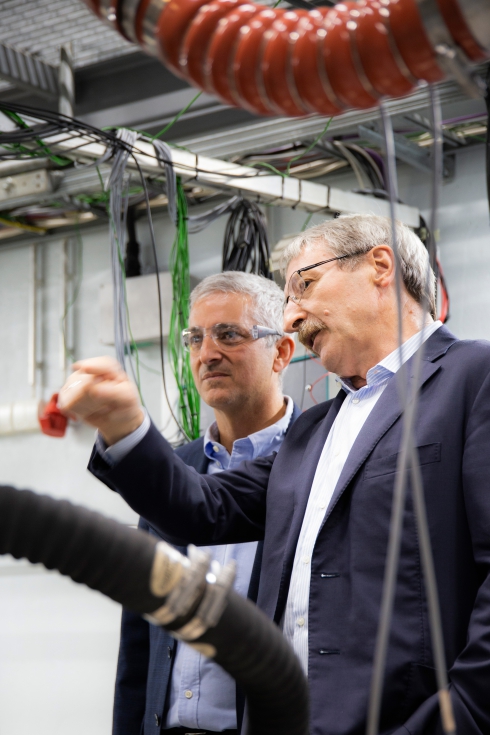
The new challenge in agricultural equipment is digitization and connectivity. You were, for a time, in charge of AGCO’s Fuse smart agriculture division. Is your company well positioned to meet customer demand?
Yes, and our Fuse brand is bringing people, machines and solutions together to provide the collective insights needed to drive progress in farming. Our Fuse solutions can be differentiated across three key values:
- Connectivity and openness provide greater compatibility and ease of use across brands and regions.
- Easier collaboration and data management allows for simpler, more efficient sharing of data and productive use of third parties; expertise outside the farm.
- And, our precision capabilities ensure that farmers perform better by more precisely collecting data, harnessing GPS technologies and leveraging automation technologies.
In this area of smart farming, many start-ups of interest to large manufacturers have emerged. Are there specific agreements or acquisitions?
We are always on the lookout for intriguing collaborations and opportunities in the technology sphere. Earlier this year we were pleased to acquire the research and development firm 151 Research, which powers our GSI GrainViz precision grain monitoring solution. And we look forward to working with them on new ways to improve our customers’ operations.
While I can’t discuss potential acquisitions, we are also excited about our upcoming partnership with NEVONEX, powered by Bosch. When available, this open platform will allow AGCO’s farmer customers to add new machine functionalities developed by third-party partners and solution providers.
Where do you think today’s agriculture is headed? Are you in a position to respond to the global challenge of feeding a world population that will exceed 9 billion people by 2050?
Agriculture will continue to be a tech-centric industry and will help drive the fight to tackle some of our greatest challenges, including climate change. Farmers and contractors want products and solutions that yield higher productivity, reliability and ease of use, and many of our smart solutions do that. We’re leveraging technologies of all kinds – robotics, AR, VR, IoT – to address a host of challenges and opportunities manufacturers and growers are facing, including the need to be more profitable while using fewer natural resources and ensuring sustainable farming practices are in place.
At AGCO, we have a wide range of sustainability initiatives to reduce energy use and carbon emissions while minimizing waste and conserving water in our own facilities, and many of our products help our customer be better stewards of the land they farm. We also just recently announced a newly created role, the Director of Global Sustainability. You’ll certainly be seeing more smart machine capabilities and sustainability efforts from us in the future, and as we go forward, we will leverage them as building blocks towards fully autonomous machine systems and even more environmentally responsible practices.
Automation, electrification, robotizations, alternative energies…Are these futuristic concepts or are they already a reality? To which ones does it grant more future within the scenario of Agriculture 4.0?
These are already or are quickly becoming a reality. In fact, AGCO has identified five strategic areas in our technology framework that we are actively investigating:
- Connectivity for data management and the digital customer experience.
- Automation includes smart machines and solutions that act to reduce stressful tasks.
- Robotics integrates automation and connectivity for plant-level functions that complement those of larger equipment.
- Electrification regards power sources that deliver improved efficiencies and lower emissions.
- Future Fuels seek to harness alternative energy solutions, such as renewable diesel, synthetic fuel and bio-methane for a more sustainable energy system.
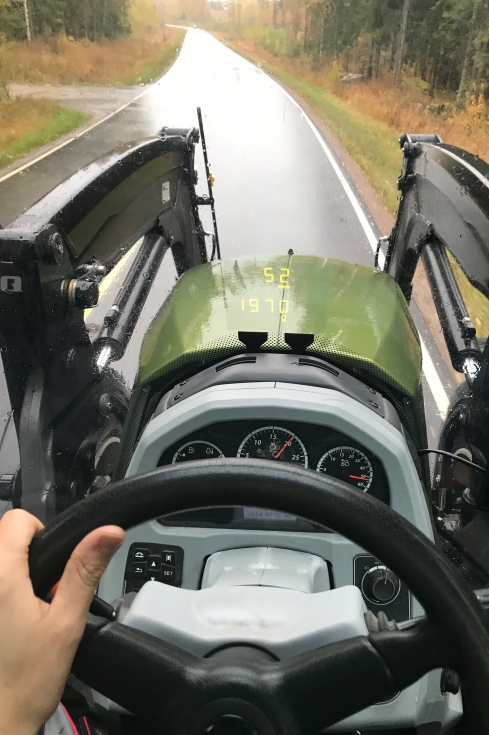
Valtra SmartGlass display, a tool for the future tractor.
What do you think the tractor will be like for the next few years and, above all, what role do you give the farmer in this scenario?
From our perspective, the tractor will stay an important factor going forward, just much more connected to the different implements as well as to other machines to support the farmer in improving his or her overall productivity all across the crop cycle, maximizing uptime and reducing environmental footprint. The farmer will still be at the center of our tractor design, as they have been for centuries, the heart of our core brands, Fendt, Massey Ferguson and Valtra. Depending on how regulations evolve, we can foresee the farmer having the choice of fully driving the tractor or using the capabilities of semi-autonomous or fully autonomous operations that will also come from the deployment of 5G technology.
How do you see the productive sector in the coming years? Will the family farming model or professionalization take hold and will large service companies continue to gain ground?
What role should agricultural equipment manufacturers and their corresponding distribution networks play in this ever-changing landscape, which is constantly evolving?
AGCO and our dealer network need to continue to provide sustainable farming solutions for farmers feeding the world, whatever the challenges might be, and constantly adapt to the current situation as we successfully did during COVID-19 pandemic. While most of the planet was in lock-down at home, agriculture could not stop to provide those who had to stay home with the quality food they needed.
This is our mission: to ensure we can offer the same level of service to our dealers and distributors, no matter what. We need to keep going the distance all across the value chain to bring more value. This is the aim of our digitalization program offering virtually a 24/7 service to our customers
What does AGCO Finance represent for the entire business of the company? What direct influence does it have on the operations of the different brands and sectors?
AGCO Finance is a joint venture with DLL Group, a Rabobank subsidiary. AGCO has a 49% ownership stake in AGCO Finance, I am a member of their board, and they share space with us at our corporate headquarters. We understand that financing solutions supporting liquidity and cash flow are very important to dealers and customers.
In these difficult coronavirus days, AGCO Finance played and still plays a key role whereby we are working together on extending and adapting our offerings to provide personalized and financially sustainable payment solutions. We are also looking into the future, investing in digital finance quotation tools to dealers as well as innovative financial products to end-users, such as rental. It is our target to enable farmers to have more peace of mind to focus on their very important core business – producing food for the population.
Where is the financial market evolving? How do you see the future of professional vehicles, a business in which alternatives such as leasing or rental?
What specific messaging can you send to AGCO teams and customers in the Spanish and Portuguese markets?
As Javier Seisdedos, Director of Distribution of AGCO Iberia, mentioned in the interview you had with him back in June, Spain and Portugal are key markets for all our AGCO Brands in Europe. Our team there is doing a great job, and I’m really proud as well about the capacity they demonstrated to adapt to the COVID-19 situation, always keeping in close contact with our dealer network and our customers. Spanish and Portuguese customers will continue to see great products and services coming to them and being demonstrated close to their farms and their fields through our brands’ ongoing demo tours.
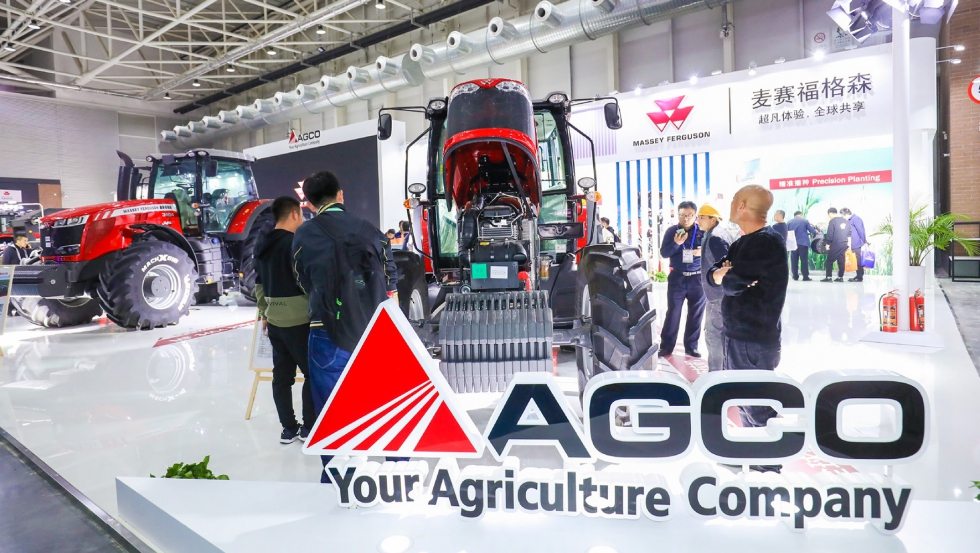
With your decision not to attend major international fairs, can it be said that a change in the fair model is taking place or does it address current issues caused by the pandemic?
AGCO with our Massey Ferguson brand had already made this decision before COVID-19, as you may recall. Back in 2018 with EIMA, we first announced our move from traditional shows to offer a more personalized and targeted experience to our customers and prospects. Our MF eXperience got its start at shows where MF did participate as a hybrid display, blending physical presence and digital capabilities.
Massey Ferguson also pioneered the use of virtual reality to immerse customers in our product line. And we did follow these shows like EIMA, SIMA or Agritechnica with personalized demos in the field with the MF eXperience Tour. I know this decision at that time sparked a lot of discussion. I know that you had dedicated talks with our MF Team at FIMA 2020 about it.
Now the coronavirus situation gives credit to AGCO’s and MF’s early decision that a change in the trade fair model is needed, as a customer won’t make any decision on investment unless he or she is able to test and drive the machine in their farms and fields. It looks like our competitors are now catching on.


